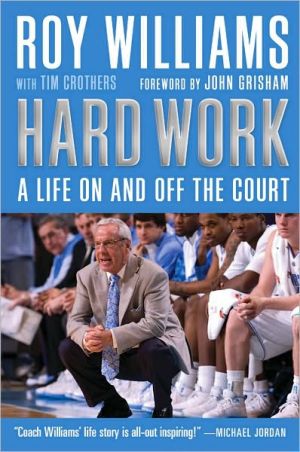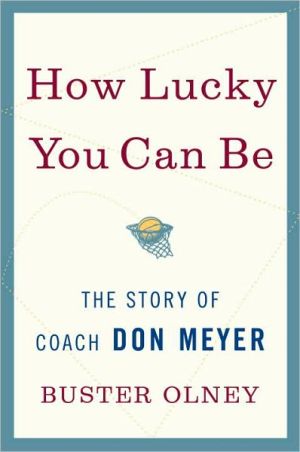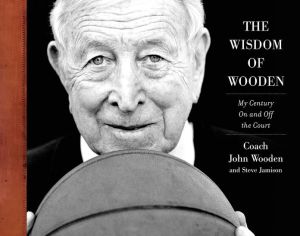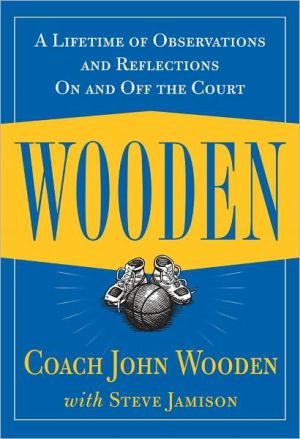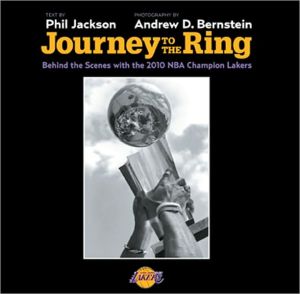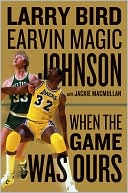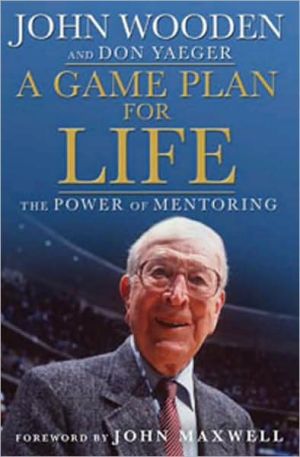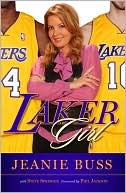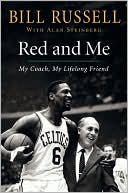Hard Work: My Life On and Off the Court
Roy Williams, head coach of the University of North Carolina men’s basketball team, the Tar Heels, has the highest winning percentage in NCAA history. Over the last seven years, the 58-year-old Asheville, N.C., native—who was inducted into the Hall of Fame in 2007—has won 205 games, including 24 in the NCAA Tournament. That’s more Final Fours, more wins, and more NCAA Tournament victories than any basketball coach in the nation.\ Hard Work tells the story of Roy Williams’ life that few people...
Search in google:
Hard Work tells the story of Roy Williams’ life that few people know, in Williams’ own distinct and colorful way—his troubled upbringing, his college years, his years of trying to make ends meet before becoming a head coach. It reveals how determination took him from an impoverished home in the mountains of North Carolina to the very pinnacle of coaching success, culminating in the 2009 NCAA National Championship (his second in five years). It is an inspirational story of what can be achieve by anyone who commits themselves to their dreams. Publishers Weekly Williams, the men's basketball coach at the University of Kansas (1988–2003) and at the University of North Carolina (2003–present), describes his personal and professional path to a Hall of Fame coaching career and two national championships. Ignored by his abusive, drunken father and raised primarily by a cash-strapped, saintly single mother, Williams paid for his college education at UNC by officiating intramural sports. When Dean Smith, that school's legendary basketball coach, offered Williams a low-paying job on his coaching staff, Williams accepted and sold calendars and delivered videotapes to TV stations to feed his family. As a head coach, Williams's dedication extends to landing recruits and running organized, thorough practices. And he's done all this while maintaining a cohesive family life. (He's married to his college sweetheart.) Well-intentioned and upbeat, the book treads the familiar ground of glossy, inspirational sports biographies. Williams recalls passionate speeches, great players (i.e., Michael Jordan, James Worthy) and various anecdotes from the coaching life, but never delivers consistent insight on the workings of a successful coach at two legendary sports programs. However, the book is redeemed by Williams's genial (and borderline hokey) tone and the forthright revelations of his tumultuous childhood and early days coaching in high school and college. 16-page photo insert. (Nov.)
HARD WORK\ A LIFE ON AND OFF THE COURT \ \ By ROY WILLIAMS TIM CROTHERS \ Algonquin Books of Chapel Hill\ Copyright © 2009 Roy Williams and Tim Crothers\ All right reserved.\ ISBN: 978-1-56512-959-7 \ \ \ Chapter One\ Stress \ One October night it got so bad that I woke up at 4 a.m. and went for a walk in the neighborhood. It was a little spooky, and I wondered if anybody else was awake and if they were thinking, "Who is that guy walking around at this hour?" So I didn't walk on the sidewalk. I walked right down the middle of the street, because I didn't want anybody to think I was a burglar and shoot my rear end.\ I just couldn't sleep.\ I never sleep very well in the preseason, but I got less sleep during the 2009 preseason than any year I have ever coached. From the start of practice, an average night's sleep for me was about four hours. So many things were running through my mind. I keep a little notepad and pen on my nightstand and a lot of times I come up with an idea and turn the light on and write it down and then try to go back to sleep. But during the '09 preseason there was never any going back to sleep. In all my years of coaching I have never felt more pressure.\ It was all because of what I wanted for one kid. I so badly wanted Tyler Hansbrough to reach his dream. This was his last chance to win a national championship. I can never remember wanting something so much for one of my players.\ I think part of it was because Tyler didn't come back for his senior year at North Carolina to improve his stock for the NBA draft. He came back because he enjoyed college and he wanted to win a national title. A very physical, no-nonsense kid from Poplar Bluff, Missouri, who had been the centerpiece of our team for three seasons, Tyler had received so many individual awards, but he never cared about any of them. All he ever really wanted was the big team prize. It felt like Tyler was carrying all of what is good about college basketball on his shoulders. I know it sounds corny, but I really felt it was only right for him to win a national championship.\ During the preseason, I had tried to tell Tyler not to let a championship be his only goal, because odds were that it was not going to happen. He looked me square in the eye. "Coach," he said, "I want to win it so bad."\ I remember it was the very end of August when I first heard that Tyler had a problem with his shin. He told the trainers he thought he got kicked, and they put some ice on it. When our preseason conditioning started in the middle of September, his leg was still bothering him, and it hurt more and more as we got closer to the start of the season. So we did an MRI and a bone scan and the problem was diagnosed as a stress reaction condition. The bone was weakened, leading to the possibility of a stress fracture or worse.\ It's the kind of injury where nobody really knows what's going to happen next. Our doctors told me that in two weeks we might see some improvement or we might not. At four weeks we might see some improvement or we might not. I could let him have six weeks off and then he could come back to practice for five minutes and break his leg. Tyler was worried he might miss the whole season. I told our doctors, "You know what they call the guy who finished last in medical school? Doctor. You know what they call the guy who finishes last in coaching? Ex-coach." Every day I jokingly threatened to fire them, but I wanted them to understand how serious this really was.\ I had no choice but to let Tyler sit out as long as he needed to, which was hard because he was the returning National Player of the Year and a guy that's going to get 20 points and 10 rebounds every game. That's a pretty big security blanket for a coach.\ Tyler sat out of practice for two weeks and then we started working him back in a little bit at a time. That was the toughest part. We'd be doing a drill that was 12 minutes long and I planned to let Tyler do half of that, but we'd get nearly through half and I'd think, "Gosh, I wonder if I should take him out?" I always knew that if I let him go one more play, he could possibly hurt himself. Every time he jumped, I worried that he might come down and snap his leg. I was thinking every play could be his last. Every day at practice before I went out on the court, I'd say a little prayer: "Let this team play well. Let me help this team and let no one get hurt, especially Tyler." In every drill, instead of coaching my team, I was peeking at Tyler with one eye and my watch with the other, wondering if I should pull him out. I finished every practice with a splitting headache. I was so worried I might end the guy's career.\ On top of all that were the expectations. While Tyler had never seriously considered leaving UNC early for the NBA, three other underclassmen-Ty Lawson, our lightning-quick point guard; Wayne Ellington, our deadly outside shooter; and Danny Green, an excellent all-around player on the wing-had all submitted their names for the NBA draft. In June, when those three guys opted to pull their names out of the draft to improve their stock with another college season, I read a story in the newspaper that said North Carolina could have one of the greatest teams ever. Then, in the summertime when I was recruiting, other coaches would say to me, "The good news is you're going to have a great team. The bad news is that everybody's going to expect you to win a national title. And if you don't win it, everybody will say your season wasn't a success." As much as I hated to admit it, I knew what they were saying was true.\ The Associated Press preseason poll came out and we were unanimously voted No. 1. The Sporting News printed a story titled "They Just Can't Lose" and said that we might be the best college team in 30 years, with a chance to be the first undefeated team since 1976, when Bobby Knight did it with Indiana. What scared me was reading that and knowing my players were hearing about it and, even more, that their families were buying into it. I knew that somewhere in the back of their minds, those guys who had considered leaving early for the pros were going to be thinking about what the NBA player personnel people had told them they should do to improve their draft positions, and they'd have their parents reminding them about it. I don't care how good a parent you are, if you're not careful you can really hurt a child by just focusing on what he needs to accomplish. That will also undermine his team. So I was trying to control what my team heard, but I couldn't control what their parents told them. I couldn't control their classmates saying, "We can't wait until basketball season starts. We're going to kill everybody!"\ I have never coached any team that had so much pressure put on it. The year before we'd gone 36-3, won our conference regular season and tournament championships, and then lost in the Final Four. Some people thought the season was a failure. Now we were supposed to go undefeated in a time of parity in college basketball when there are so many more high-quality teams that it just doesn't happen anymore. I knew that every game we played was going to be overanalyzed so that if we won by 25, people were going to say we should have won by 30. It was never going to be enough. That's an uncomfortable feeling when you can't be excited about winning.\ Every day I said to the team, "I want you all to realize that our goal to win a national title is realistic, but also understand that the only people you've got to please are me and yourselves. That's it. Don't be concerned about what anybody else is saying. Those other people have nothing invested in it. You're the ones who are sweating in the weight room. You're the ones who are running yourselves half to death at the end of practice."\ I told them to ignore the expectations and I think they tried to put them out of their minds. I knew I'd be fighting all year to try to keep that weight off my team. I still thought it was something that we could never rest on. We had to attack it every single day. I knew I'd have to keep reminding them to enjoy the ride. But in the back of my mind, I also knew it would always be there. I felt the worst stress of my entire life.\ That night as I walked down the middle of my street at 4 o'clock in the morning, I was thinking, "How can I live with myself if I don't get Tyler and the rest of these guys back to the Final Four?"\ I held Tyler out of the first two games of the season. That was a hard decision because we'd also lost Marcus Ginyard, a senior and our best defensive player, after he'd injured his foot in the preseason, and we didn't have any idea when he was coming back. Then freshman Tyler Zeller broke his wrist in our second game against Kentucky, and we thought he could be out for the whole season.\ In our third game, we went to UC Santa Barbara and Tyler felt much better, so I let him play. I could tell he was pressing. He missed some shots that he normally makes. He also sprained his ankle early in that game, which added another question mark as to whether he was healthy enough to play.\ Then we went to Hawaii for the Maui Invitational and I didn't play Tyler in the opener of the tournament against Chaminade. He played all right in the next game against Oregon, but we limited his minutes. He proved that the ankle was not a problem, but I was still concerned. I couldn't decide whether to play him the next night in the championship game against Notre Dame. I knew he'd be so fired up to play against a Top 10 team and against Luke Harangody, another big guy who was supposed to be pretty good. I talked to Tyler in warm-ups and I said, "Big fella, how do you feel?"\ Tyler said, "Coach, I'm fine."\ "No, Tyl-"\ "Coach, I'm fine!"\ "I just want to make sure I'm-"\ "Coach, I'm fine!"\ I thought I was going to have to fight him.\ "Okay," I said, "I'll start you, but if I don't like what I see, I'm taking you out of the game and you won't play anymore."\ I didn't really mean that, but I was just trying to remind him that I was the head coach. So I started him and he was sensational. He scored 34 points and we won.\ A week later we went to Detroit to play Michigan State at Ford Field, where the Final Four would be played. Michigan State had been through a tough travel schedule leading up to that game and they had a couple of guys hurt, so we tried to establish a quick tempo right from the start. It was a close game for a while, but right before the half I noticed that the Michigan State players were not sprinting back on defense and seemed to be tiring. I turned to my assistants and said, "They're done. If we keep the hammer down, this one is going to be over with early in the second half."\ We were up by 14 points at halftime, but early in the second half we pushed the tempo even higher. Michigan State started coming up short on open shots. We took away their second shots and kept running our break, and they hit the wall. It felt like a snowball rolling down the hill getting bigger and bigger. We won by 35. After the game I said, "Guys, we were really good today, but that other team helped us. They lost their legs. Say good things about them, because we may play them again down the line."\ Then I added, "If we keep playing our tails off, we might even have a chance to come back here."\ A week before Christmas, Tyler broke the UNC scoring record against Evansville, but he was still saying that his shin ached and throbbed after games, so we did another MRI and bone scan. The doctors found no fracture lines, and the bone was healing, so I told him, "Tyler, your leg is okay. You're driving yourself crazy and you're driving us crazy. We need to put this to rest." After that meeting he was fine. I don't think he mentioned his shin again the rest of the year.\ We won our first 13 games of the season. Tyler recovered to lead our team in scoring in the last six of those games, establishing himself again as the focal point of our offense. Ty was playing brilliantly at the point, rarely turning the ball over and making three-point shots whenever he was given an opening. Then in our Atlantic Coast Conference opener at home against Boston College, we got beat. We were so fat and happy and I think we were surprised by how emotional Boston College was. Rakim Sanders came into that game shooting under 30 percent from three-point range for them and he made four against us. Tyrese Rice scored 25 points and made shots even when we had fingers in his nostrils. Boston College made plays they had not made the whole season. It was one of those games when the people in our locker room understood that we had to give Boston College some credit even when the people outside of our locker room would be saying that we screwed it up. We didn't play great by any means, but they had played really well and we had to accept that. That doesn't mean the media accepted it. They blasted Ty. They said he wasn't quick enough to defend Rice and that it was a mismatch. I had to handle that. I had to make sure that everybody knew that Ty wasn't the only reason we lost that game, and that it was just one game.\ But the loss was a shock to everybody on our team-not just the fact that we lost but that we lost to an unranked team at home. It shook our confidence. A coach can see that right away. In our next practice there was no laughing and trash-talking between drills. It was deadly serious. We'd move the ball three times to a guy with a wide-open shot, and then he'd pass it up to a teammate with the same kind of shot. Our guys just weren't sure of themselves.\ Our next game was a non-conference game against College of Charleston, and in the first half we came out tight. We won that game easily, but it didn't erase the lack of confidence that we felt, because we all knew we didn't play great. I knew that our problems could linger.\ Four days later, we played our second ACC game at Wake Forest, an undefeated team that was ranked in the Top 5. It turned out to be one of those nights when everything felt like it was going in their favor. Their mojo was right, their cycle of the moon was right, their biorhythms were right-and we were struggling. Jeff Teague went absolutely bonkers from the perimeter and scored 34 points for them. Tyler made only three of his 12 shots and Ty turned the ball over four times, the most turnovers he'd had all season.\ That game was the first time that I saw my team have serious doubts. Our shot selection, our patience, our poise, our resolve-we lacked everything that helps you win a tough game. I tell our kids all the time that in every close game somebody's going to give in and let's not let it be us. But that night it was us. We panicked. We didn't defend. We didn't run back on defense. When our guys came over to the sideline for timeouts, they had a beaten look. They were not walking up on their toes, carrying themselves like they were going to win. They were shuffling around with their heads down and their shoulders slumped. None of them had the confidence that their teammates could get it done, so they didn't play as a team. Each of them was thinking, "I've got to make the shot. I've got to get us out of this mess."\ We lost that game by three points. When we left the court, the crowd was chanting, "Over-rated! Over-rated!" I clearly remember walking into the tunnel and hearing one guy yell down at me, "That's right, Williams, your team sucks!"\ Our locker room was split into two rooms. The players sat in one room, and I walked into the other to think about what to tell them. I never prepare what I'm going to say at the end of a game that we lose, because I'm always dumb enough to think we're going to pull it out at the end. So after losses I always give myself a little more time to collect my thoughts. I know they're more likely to remember what I say to them after a loss because that's when I have everybody's attention.\ I paced around that room for about three minutes. I knew we were dealing with a lot of negatives. We'd lost our first two conference games. I knew that the media was going to go after Ty and say that he'd been outplayed badly by Rice and then Teague. After the Boston College game there had been a sense of doom from the press and that had carried over to the public. I'd already seen people jumping ship, and now I knew everybody was going to say that we were sinking. All around us that night there was panic.\ In basketball, no matter how good your team is, you're always one step away from falling off a cliff. If the players' confidence isn't restored quickly, a team that has lost two in a row can all of a sudden lose four straight, and then it gets to be five out of six, and then it's six out of eight, and there is nothing to grab onto, nothing to slow you down. You just keep falling. I knew our team was standing on the edge of that cliff.\ When I walked through the door into the players' locker room, I expected to see some anxiety, but it was a lot worse than that. Some guys were crying. Some guys were really ticked off at themselves. Some guys were really ticked off at other people. Some guys were feeling sorry for themselves. Some of them were just disgusted with the way we'd played. The looks on their faces told me that I couldn't just say, "Hey, Wake had a great night." That wasn't going to work. They needed me to tell them how we were going to be all right.\ As I turned to speak to them, I did what I have always done.\ I drew from my past.\ (Continues...)\ \ \ \ \ Excerpted from HARD WORK by ROY WILLIAMS TIM CROTHERS Copyright © 2009 by Roy Williams and Tim Crothers. Excerpted by permission.\ All rights reserved. No part of this excerpt may be reproduced or reprinted without permission in writing from the publisher.\ Excerpts are provided by Dial-A-Book Inc. solely for the personal use of visitors to this web site. \ \
Contents FOREWORD by John Grisham....................ixINTRODUCTION....................xiii1 Stress....................12 Angels and Demons....................113 Home Games....................244 A Small Fish....................385 Being Like Buddy Baldwin....................546 The Best Dadgum Calendar Salesman There Ever Was....................677 Big-time Ballcoachin'....................898 Decision, Decision....................1279 Winning the Whole Blessed Thing....................14610 Philosophy....................16511 Stealing Brownies....................19812 Stress Relief....................22113 The 19th Hole....................23614 Look Homeward, Angel....................253Acknowledgments....................261Appendix A....................265Appendix B....................269Appendix C....................270Index....................275
\ Publishers WeeklyWilliams, the men's basketball coach at the University of Kansas (1988–2003) and at the University of North Carolina (2003–present), describes his personal and professional path to a Hall of Fame coaching career and two national championships. Ignored by his abusive, drunken father and raised primarily by a cash-strapped, saintly single mother, Williams paid for his college education at UNC by officiating intramural sports. When Dean Smith, that school's legendary basketball coach, offered Williams a low-paying job on his coaching staff, Williams accepted and sold calendars and delivered videotapes to TV stations to feed his family. As a head coach, Williams's dedication extends to landing recruits and running organized, thorough practices. And he's done all this while maintaining a cohesive family life. (He's married to his college sweetheart.) Well-intentioned and upbeat, the book treads the familiar ground of glossy, inspirational sports biographies. Williams recalls passionate speeches, great players (i.e., Michael Jordan, James Worthy) and various anecdotes from the coaching life, but never delivers consistent insight on the workings of a successful coach at two legendary sports programs. However, the book is redeemed by Williams's genial (and borderline hokey) tone and the forthright revelations of his tumultuous childhood and early days coaching in high school and college. 16-page photo insert. (Nov.)\ \ \ \ \ Kirkus ReviewsA Hall of Fame college-basketball coach chronicles his rise from poor son of an alcoholic father to winner of two national championships at his alma mater, the University of North Carolina. It's difficult to take seriously a man who habitually eschews curse words in favor of epithets like "dadgum," so it's fortunate that Williams has built up serious credibility during his distinguished career as the head coach at UNC and the University of Kansas. Williams' aw-shucks demeanor masks the inner fury of an intense competitor, a man so driven to win that he invents new competitions just to give himself another chance at victory. A near-perfect embodiment of the American Dream, he endured a hardscrabble youth dominated by a violent father-who ultimately abandoned the family-before climbing down out of a family tree filled with far more scoundrels than scholars. The scrappy Williams overcame those inherent disadvantages and carved out a niche for himself as a junior-varsity player at UNC, foregoing varsity scholarships at smaller schools, before giving up his playing career to focus on coaching. While on-court emotion and intensity account for much of his success, these attributes sometimes overpower the narrative. Williams' unrelenting desire to convey his earnest belief in hard work and love for his family, friends and players (Tyler Hansbrough in particular) is as cloying as it is compelling-he opens by recalling bouts of insomnia prior to the 2009 season brought about because he so desperately wanted Hansbrough to win a championship in his senior season. Still, the legions of Carolina fans will relish stories-including the recruitment of Michael Jordan-from Williams' days as an assistantunder legendary coach Dean Smith; college-basketball fans will admire his tenaciousness; and Kansas fans may finally forgive ol' Roy for leaving (well, maybe not). Williams coaches far better than he writes, but he does spin a good yarn. First printing of 150,000\ \ \ The Chapel Hill Herald“Alan Winter’s Southern accent matches the author’s coloquial style. Williams’ rough path makes him even more worthy of coach-worship.”\ —The Chapel Hill Herald\ \
